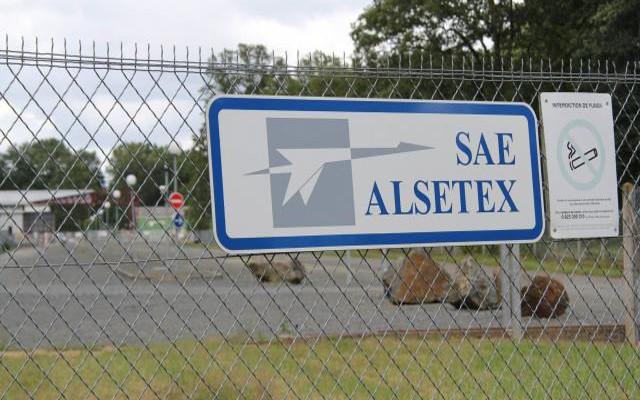25 July 2016 – Paris, France – The French national branch of the Organization for Economic Cooperation and Development (OECD) today announced ADHRB and riot-control weapons company Etienne-Lacroix had come to an agreement regarding the presence of the company’s weapons in Bahrain. The agreement states that the company will take additional steps to protect against the re-export of its products to countries with poor human rights records. ADHRB acknowledges the company’s commitment towards keeping its weapons out of Bahrain, and thanks French National Contact Point (NCP) for facilitating the agreement and for its help in resolving the issue of French tear gas in Bahrain.
In September of last year, ADHRB filed a complaint with the National Contact Point (NCP) of the OECD in Paris, France regarding potential violations of the OECD Guidelines committed by French company Etienne-Lacroix after subsidiary company SAE Alsetex’s tear gas canisters surfaced in Bahrain. The tear gas canisters were found after Bahraini security officers attacked protests against the government; ADHRB contacts stated that the company’s products were among those often used in Bahrain’s assault on protests.
In 2011, France banned the export of all riot control products to Bahrain after determining that they had been misused to repress peaceful protests in February that year. As the products found in Bahrain bore markings indicating that they had been produced after the ban went into place, ADHRB asked the NCP to investigate possible violations of the ban as well as violations of the OECD Guidelines on human rights, a voluntary set of principles regarding responsible business practices in relation to human rights.
The NCP’s decision today states that Etienne-Lacroix was able to demonstrably affirm that they had not violated the ban and had not contributed to human rights violations in Bahrain. The NCP also commented on the company’s developing human rights policy, which it stated should be published as soon as possible.
Throughout the consultation process, however, ADHRB was able to identify and suggest improvements to Etienne-Lacroix in order to guard against the re-export of their products to human rights abusing countries, including Bahrain. ADHRB’s recommendations included punitive fines for countries that re-export Etienne-Lacroix products, as well as the termination of all business relations in the case that a country re-exports such products multiple times. The NCP agreed that ADHRB’s recommendations would help the company better protect at-risk persons, and suggested that Etienne-Lacroix incorporate them into its new human rights policy. It is ADHRB’s understanding that Etienne-Lacroix intends to do so.
“The decision from the OECD means the absolute end of French tear gas flowing into Bahrain,” said Husain Abdulla, the executive director of ADHRB. “While we commend the French government for instituting its tear gas ban in 2011, it falls to individual companies to protect against the threat of re-export so that their products can in no way be used towards oppression. We hope that other companies will follow the NCP’s advice, so that the Government of Bahrain has nowhere else to go to obtain its repressive tools.”
Alsetex tear gas is not the only riot control product from an OECD country available to Bahraini security forces. Last year, ADHRB filed a complaint with the Brazilian NCP against Condor Non-Lethal Technologies, another company who exports products used for abuse in Bahrain. While the Brazilian NCP conducted preliminary investigations, the Brazilian government ultimately blocked the case from proceeding.
“Just as France should be commended for helping to keep weapons out of the hands of serial abusers, Brazil should be ashamed for effectively aiding in the repression of the Bahraini people,” said Abdulla. “The international community must come together in solidarity in order to deny Bahrain, and all other human rights abusers, the tools for violence.”





